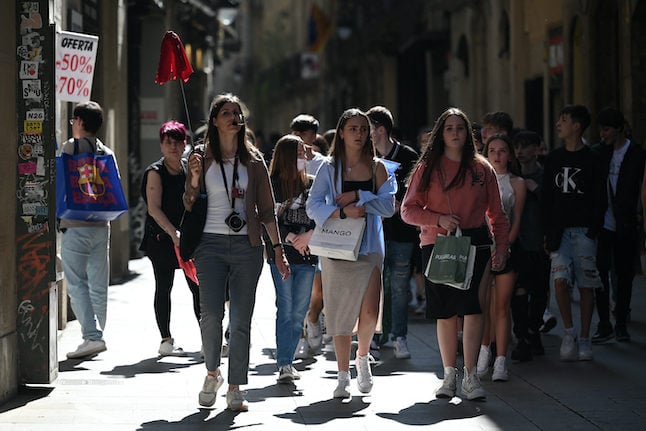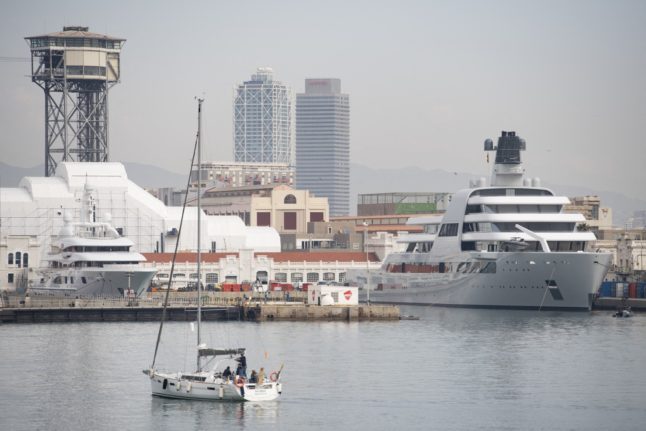The Old Town or Ciutat Vella is one of the most-visited areas of Barcelona and includes well-known tourist areas such as the Gothic Quarter, Las Ramblas and El Born. Here, it’s not uncommon to see large tour groups, blocking up the narrow streets and stopping the flow of pedestrians.
The new restrictions were announced by the councillor of the Ciutat Vella district, Jordi Rabassa, and the councillor for Tourism and Creative Industries, Xavier Marcé and are to be put on public display to ensure all potential disagreements can be solved before the rules come into force, which could be as early as the end of July 2022.
While groups will be limited to 15 people within the Ciutat Vella, in the city’s other neighbourhoods, where streets are slightly wider and it’s not so crowded, up to 30 people will be allowed per group.
Barcelona City Council has also introduced restrictions on the number of tour groups that can enter certain areas at one time. For example, a maximum of eight tour groups will be allowed in the central Plaça Sant Jaume, where the Ayuntamiento is located, five groups will be permitted to enter the colonnaded Plaça Reial, while a limit of three groups can visit the squares around the old Santa María del Mar church in El Born.
This restriction will affect 13 different areas throughout the city.
The new rules will also introduce 24 one-way pedestrianised areas, where the concentration of tourists is even greater, in a bid to stop a bottleneck of people.
The aim is to make sure that streets are not clogged up by tourists, preventing locals from going about their daily life and accessing areas where they live, work, socialise and run errands.
Those tour guides who do not comply with the new rules will be faced with fines of between €1,500 and €3,000.
Other rules which will apply to tour groups across the whole city include banning the use of megaphones and making sure that at least 50 percent of the street is left free for others to use.
Barcelona suffered from over-tourism before the Covid-19 pandemic began and in 2019 received a record number of visitors of almost 12 million. This summer has seen a huge increase in tourists after numbers dropped dramatically in 2020 and 2021, and hotel occupation is already at 100 percent for July and August.



 Please whitelist us to continue reading.
Please whitelist us to continue reading.
Member comments